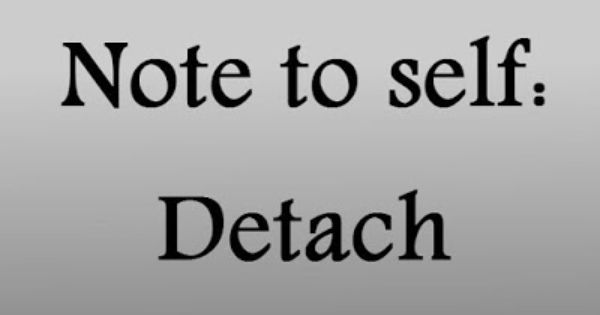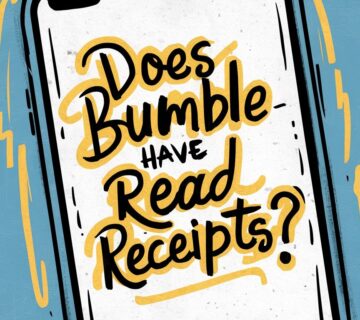In a digital dating world built on alerts, profile badges, and instant replies, the ability to step back and detach is fast becoming an essential skill. As 2025 unfolds and apps like Bumble, Hinge, and Tinder keep rolling out new features, more singles are quietly discovering: sometimes the secret to true connection is letting go of control, outcomes, and the obsessive checking.
What is Digital Detachment in Dating?
Digital detachment means maintaining emotional and behavioral boundaries while using dating apps or online services—a mindful practice of avoiding over-investment in every profile, message, or “seen” indicator Detach.
It’s about:
-
Checking your matches less frequently
-
Not letting slow replies dictate your day
-
Avoiding obsession with metrics, likes, and “read” notifications
-
Focusing on your well-being, not just your swipe success
Detachment doesn’t mean apathy. Instead, it’s the choice to center your self-worth, joy, and attention outside of the algorithm’s dopamine loop.
Why Is Detachment Suddenly Trending in 2025?
1. Notification Fatigue and Burnout
After years of “always-online” dating, many users report feeling overwhelmed by the pressure to keep up, check in, and reply at lightning speed. Resetting—by stepping back—restores mental clarity.
2. Privacy-First Platforms Are Changing the Game
Detach, With apps like Bumble and Hinge doubling down on privacy (no read receipts, no last seen, no blue ticks), users are getting used to not knowing everything—and it’s bringing unexpected relief.
3. The Rise of Mindful, “Slow” Romance
Relationship experts and influencers now openly encourage users to:
-
Pause before replying
-
Reflect before swiping
-
Appreciate fewer, better connections over endless chats
4. A Backlash Against the Gamification of Love
Endless swiping, streaks, and “match scores” have turned dating into a numbers game. Detachment lets you disengage from this “casino effect” and reclaim a sense of normalcy.
The Psychological Benefits of Digital Detachment
-
Decreased Anxiety: Fewer notifications and less pressure mean greater peace of mind.
-
Healthier Boundaries: By controlling your time, you show others that you value yourself as much as any romance.
-
More Authentic Conversations: Without obsessing over outcomes, messages become more natural—and rejection less devastating.
-
Better Self-Esteem: Your confidence grows as you base it on your real life, not digital attention.
-
Resilience to Ghosting: When you’re less invested in every single reply, it’s easier to brush off disappointments and quickly move forward.
Real User Stories: Breaking Free From the Cycle
“At first, I’d check Bumble ten times a day. When I stopped, I felt free—and the people who were really interested always replied anyway.”
— Amir, 28, Delhi
“I used to panic when someone didn’t answer instantly. Now, I wait days, reply when I feel like it, and focus on my hobbies. Dating got less stressful and way more fun!”
— Rhea, 31, Mumbai
“No read receipts on Bumble saved my sanity. I can detach, go for a run, and check messages later—no drama, just real connection.”
— Priya, 27, Bengaluru
How Top Dating Apps Encourage Healthy Detachment in 2025
| App | Read Receipts? | Last Seen? | Aggressive Alerts? | Privacy Level | Notes |
|---|---|---|---|---|---|
| Bumble | No | No | Minimal | High | Empowers user detachment |
| Hinge | No | No | Minimal | High | Thoughtful messaging |
| Tinder | Yes (Premium) | Yes | Frequent | Medium | Can encourage anxiety |
| OkCupid | Yes (Premium) | Yes | Moderate | Medium | Some privacy controls |
| eHarmony | Yes | Yes | Moderate | Low | Traditional, less private |
Bumble and Hinge stand out for making detachment easier by design, with privacy and boundaries as core features rather than afterthoughts Detach.
Detachment vs. Indifference: What’s the Difference?
-
Detachment: Consciously choosing when, how, and whom to engage with—while still caring about genuine connections.
-
Indifference: Not caring at all. Not replying to anyone, letting your odds drop, and refusing to engage.
Detachment is intentional, mindful, and healthy; indifference usually results from burnout or cynicism.
Common Myths About Digital Detachment—Debunked
-
“If I don’t check often, I’ll miss out!”
False: Those truly interested won’t vanish because you waited a few hours (or days). -
“Detachment means I’ll become cold or unapproachable.”
False: Healthy detachment lets you engage deeper with matches, because you’re secure in yourself. -
“More swiping equals better results.”
False: Over-investment leads to fatigue, disappointment, and shallow connections.
Pro Strategies: How to Master Digital Detachment on Dating Apps
1. Set Boundaries For App Use
Designate times for checking and replying—never let the app dictate your schedule.
2. Turn Off Push Notifications
Review updates on your terms. This reduces reactive checking and increases emotional calm.
3. Prioritize In-Person Life Over Digital Chats
Schedule activities that fulfill you outside the app: sports, family, hobbies, downtime.
4. Respond Only When Energized
Wait to reply until you truly have the time and headspace to engage thoughtfully.
5. Craft Messages Slowly and Intentionally
Quality trumps speed—this signals confidence and maturity.
6. Resist “Double Texting” and Over-Checking
Send one message, leave space. If there’s no reply, move on gracefully.
7. Embrace Uncertainty
Let go of the need to know exactly when, why, or how someone will reply.
When Detachment Is Hard: Signs and Solutions
-
You compulsively check for replies despite wanting to wait.
-
You feel anxious or rejected after every silence—even when it’s brief.
-
You start doubting your self-worth based on matches or messages.
What to do:
-
Log your app use and emotions with a journaling app.
-
Set daily check-in/inbox routines with clear limits.
-
Use apps whose designs support privacy and low-pressure chat.
Why Privacy-First Design Promotes Detachment
According to the Electronic Frontier Foundation (EFF)—the world’s leading privacy nonprofit:
“Reducing mandated system feedback (like read receipts and seen notifications) enables users to craft healthy boundaries, reduce stress, and build more authentic digital relationships.”
Bumble, Hinge, and similar innovators are at the forefront of this privacy-first, resilient approach.
Frequently Asked Questions
Q: Isn’t it risky to detach in a crowded dating market?
A: Only if you stop engaging entirely. True detachment is not indifference, but mindful presence.
Q: Will my matches move on if I reply slowly?
A: If a connection is genuine, a patient pace will only strengthen it.
Q: What if using dating apps still makes me anxious?
A: Choose platforms with strong privacy, set firm boundaries, talk to friends, and step back often to reset your emotional balance.
Read More: Navigating Ambiguity: The New Power Skill for Digital Dating in 2025
Conclusion: Detachment Is a Power Skill for Digital Love
In the endless swirl of dating apps, notifications, and profiles, detachment is the anchor that returns you to self-confidence and joy. It lets you focus on what matters: your own life, your own peace, and the connections that are truly worth your time Detach.
If you want to thrive on dating apps in 2025, learn the art of digital detachment.
Let mystery grow, let pressure fade, and let the algorithm fade into the background—so you, and your future partner, can meet as your best selves.








[…] Read More: The Art of Digital Detach: Why Less Is More on Dating Apps in 2025 […]